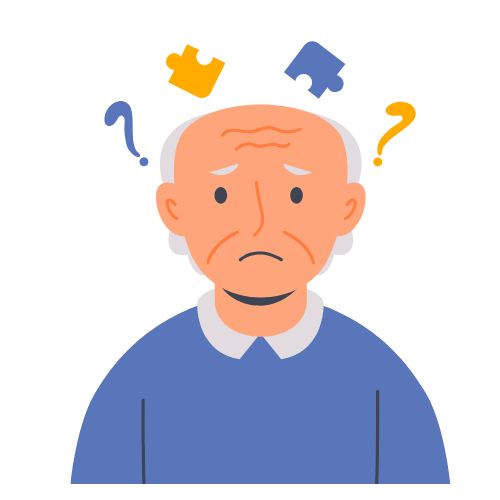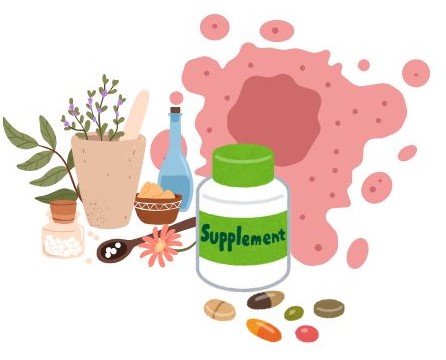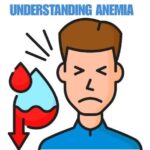Anxiety disorders are among the most common mental health issues globally, affecting approximately 40 million adults in the United States alone. Characterized by excessive worry, fear, and apprehension, anxiety can manifest in various ways, impacting daily life, relationships, and overall well-being. While conventional treatments such as psychotherapy and medication can be highly effective for many individuals, they may not be suitable for everyone. Some may experience side effects from medications or may prefer to explore complementary approaches that align more closely with their lifestyle and beliefs.
In recent years, there has been a significant shift toward exploring alternative treatments for anxiety, which encompass a range of practices and therapies beyond traditional medicine. These alternative methods are rooted in holistic principles, emphasizing the interconnectedness of the mind, body, and spirit. Many individuals find that these approaches not only help alleviate anxiety symptoms but also enhance their overall quality of life, promoting a sense of balance and well-being.
Anxiety encompasses a range of disorders characterized by excessive worry, fear, or apprehension. Common forms include generalized anxiety disorder (GAD), panic disorder, social anxiety disorder, and specific phobias. Symptoms can manifest physically, emotionally, and behaviorally, leading to significant disruptions in daily life. Understanding the underlying causes and triggers of anxiety can help individuals select appropriate alternative treatments that resonate with their needs.
This article delves into various alternative treatments for anxiety, highlighting the benefits and potential effectiveness of each approach. From mindfulness and herbal remedies to acupuncture and nutrition, we will explore how these methods can serve as valuable tools in managing anxiety. By providing insights into these holistic options, we aim to empower individuals to make informed decisions about their mental health and discover what resonates best with their unique experiences.
As we navigate through the complexities of anxiety, it’s important to remember that there is no one-size-fits-all solution. Each person’s journey is distinct, and what works for one individual may not work for another. Therefore, a comprehensive and personalized approach to anxiety management is essential. By integrating alternative treatments with traditional methods, individuals can develop a well-rounded strategy that addresses their specific needs and fosters resilience in the face of anxiety.
1. Mindfulness and Meditation for Anxiety
Overview
Mindfulness and meditation practices focus on being present in the moment and cultivating awareness without judgment. These techniques have gained popularity as effective tools for reducing anxiety.
Benefits
- Reduces Stress: Regular mindfulness practice can lower stress hormones and promote relaxation.
- Enhances Emotional Regulation: Mindfulness helps individuals recognize and manage their thoughts and emotions, reducing anxiety reactivity.
- Improves Focus: Meditation can enhance concentration and cognitive flexibility, contributing to a clearer mind.
Practices
- Mindfulness Meditation: Focus on your breath and bring attention to the present moment. When thoughts arise, acknowledge them without judgment and return your focus to your breath.
- Body Scan: Lie down comfortably and mentally scan your body from head to toe, observing any tension or discomfort without trying to change it.
2. Herbal Remedies to Reduce Anxiety
Overview
Certain herbs have been used for centuries to alleviate anxiety symptoms. While scientific research on their effectiveness varies, many individuals find relief through herbal treatments.
Common Herbal Remedies
- Chamomile: Known for its calming properties, chamomile can reduce anxiety and improve sleep quality.
- Lavender: Often used in aromatherapy, lavender is associated with reduced anxiety and stress.
- Valerian Root: Traditionally used as a sedative, valerian root may help with sleep disturbances linked to anxiety.
Caution
Always consult a healthcare professional before starting any herbal supplements, as they can interact with medications or have side effects.
3. Anxiety and Acupuncture
Overview
Acupuncture is a traditional Chinese medicine technique that involves inserting thin needles into specific points on the body. It aims to restore balance and promote overall well-being.
Benefits
- Promotes Relaxation: Acupuncture can trigger the release of endorphins, promoting a sense of calm.
- Reduces Symptoms: Some studies suggest that acupuncture can help alleviate anxiety symptoms and improve mood.
Considerations
Seek treatment from a licensed acupuncturist who has experience in treating anxiety and mental health conditions.
4. Yoga for Anxiety
Overview
Yoga combines physical postures, breathing exercises, and meditation to promote physical and mental well-being. It is increasingly recognized for its effectiveness in reducing anxiety.
Benefits
- Stress Reduction: Yoga encourages relaxation and reduces levels of cortisol, the stress hormone.
- Improved Flexibility and Strength: The physical practice of yoga enhances physical health, contributing to overall well-being.
- Mind-Body Connection: Yoga fosters mindfulness and self-awareness, helping individuals manage anxiety more effectively.
Practice
Incorporate gentle yoga styles such as Hatha or Yin yoga, which emphasize relaxation and mindfulness. Focus on breathing techniques to enhance the calming effects.
5. Nutrition and Dietary Changes to Support Anxiety
Overview
Diet plays a crucial role in mental health, and certain foods can influence anxiety levels. A balanced diet can support overall well-being and help manage anxiety symptoms.
Nutritional Approaches
- Omega-3 Fatty Acids: Found in fish, flaxseeds, and walnuts, omega-3s may reduce anxiety and improve mood.
- Magnesium-Rich Foods: Foods like leafy greens, nuts, and whole grains can help regulate neurotransmitters and support a calm mind.
- Probiotics: Gut health is linked to mental health; incorporating fermented foods like yogurt, sauerkraut, and kimchi may support a healthy gut microbiome.
Considerations
Work with a registered dietitian or nutritionist to create a personalized dietary plan that supports your mental health needs.
6. Exercise for Anxiety
Overview
Regular physical activity is one of the most effective natural treatments for anxiety. Exercise releases endorphins, which can enhance mood and reduce feelings of stress.
Benefits
- Boosts Mood: Physical activity promotes the release of neurotransmitters that help regulate mood.
- Reduces Tension: Exercise can relieve muscle tension and improve overall physical health, contributing to a sense of well-being.
- Provides Structure: Regular exercise routines can provide structure and a sense of accomplishment, helping to combat anxiety.
Recommendations
Aim for at least 30 minutes of moderate exercise most days of the week. Activities like walking, jogging, swimming, or group fitness classes can be beneficial.
7. Breathwork for Anxiety Symptoms
Overview
Breathwork involves conscious control of breathing patterns to promote relaxation and reduce anxiety. This technique can be practiced anywhere and can be a quick way to calm the mind.
Benefits
- Immediate Relaxation: Controlled breathing can activate the body’s relaxation response, reducing anxiety symptoms in the moment.
- Enhanced Focus: Breathwork encourages mindfulness and present-moment awareness, which can help alleviate anxious thoughts.
Techniques
- Deep Breathing: Inhale deeply through your nose for a count of four, hold for four, and exhale through your mouth for a count of four. Repeat for several cycles.
- Box Breathing: Inhale for four counts, hold for four, exhale for four, and hold again for four. This structured breathing can promote calmness.

Navigating the landscape of anxiety management can be challenging, and the search for effective solutions often leads individuals to explore both traditional and alternative treatments. While conventional therapies, including psychotherapy and medication, have proven effective for many, alternative treatments offer a complementary path that addresses the holistic nature of anxiety. By considering various options such as mindfulness practices, herbal remedies, acupuncture, yoga, nutritional adjustments, exercise, and breathwork, individuals can empower themselves to take an active role in their mental health journey.
The integration of these alternative methods can yield significant benefits, including reduced anxiety symptoms, improved emotional regulation, and enhanced overall well-being. Many individuals report a greater sense of control and resilience when they adopt a multi-faceted approach to anxiety management, recognizing that it is not solely about eliminating anxiety but learning to cope with it effectively.
Importantly, the journey to managing anxiety is deeply personal. What works for one person may not resonate with another, making it essential to approach alternative treatments with an open mind and a willingness to experiment. It’s also crucial to consult with healthcare professionals before making significant changes to your anxiety management plan, particularly if you are already undergoing treatment.
As the understanding of mental health continues to evolve, embracing a comprehensive strategy that incorporates both traditional and alternative methods can lead to more effective and sustainable outcomes. By fostering a supportive environment that encourages exploration and self-discovery, individuals can cultivate the tools they need to navigate anxiety with confidence and grace. Ultimately, the goal is to create a balanced and fulfilling life, where anxiety is managed effectively, and personal growth is nurtured.
In conclusion, the world of alternative treatments for anxiety is rich with possibilities, inviting individuals to explore and find what resonates with them. By prioritizing mental health and well-being, embracing holistic practices, and seeking support when needed, we can all move toward a brighter, more balanced future.







